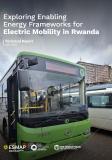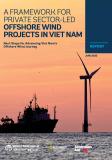Publications
Cooking with electricity could make a significant contribution to achieving Sustainable Development Goal No.7 by simultaneously enabling cost-effective access to modern energy and clean cooking, and proposing the steps needed to realize this opportunity. Five case studies are presented, comparing the current and projected costs to the consumer of a range of electric cooking (eCooking) solutions with current expenditures on cooking fuels. The findings show that eCooking can be a cost-effective option for some consumers in both off-grid and grid-connected settings and is likely to become increasingly viable in the near future.
The use of energy efficient eCooking appliances can challenge the widespread perception that electricity is too expensive for cooking in developing country contexts. Innovative financing and delivery models are vital in making eCooking devices affordable. This will hinge upon private sector willingness—in particular solar companies, mini grid operators, and utilities—to adopt the technology as part of the services offered to customers. Unlocking these emerging opportunities could enable transformative impact for the 2.8 billion people still cooking with biomass. This will take concerted global effort to create an enabling environment that can facilitate the integration of electric cooking into electrification planning and renewable energy investments.
Energy Sector Management Assistance Program. 2020. Cooking with Electricity: A Cost Perspective. World Bank, Washington, DC. © World Bank. License: CC BY 3.0 IGO. https://openknowledge.worldbank.org/handle/10986/34566



